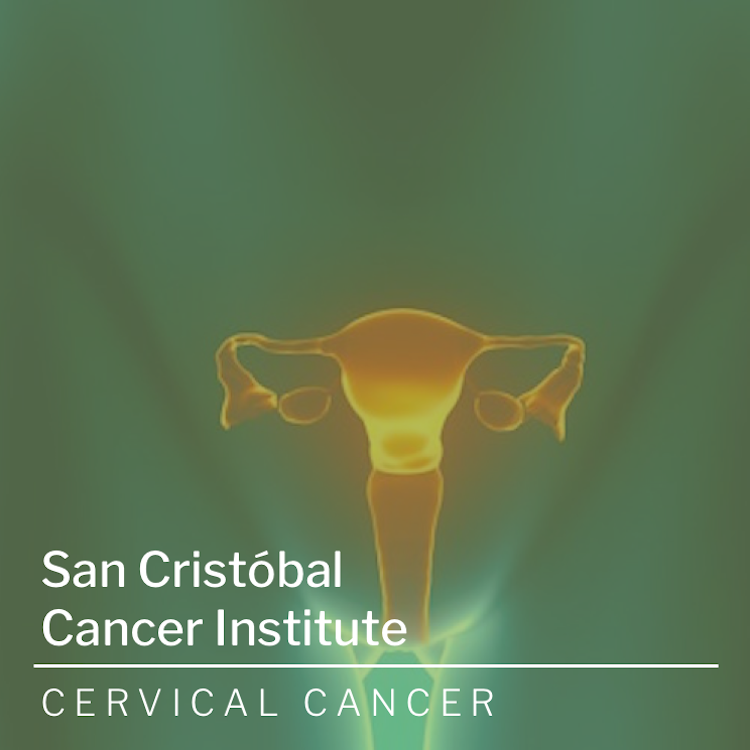
Cervical Cancer Facts

The incidence of cervical cancer in Puerto Rico continues to increase, placing its average at 13.9 per 100,000 women, according to the most recent statistics from the Central Cancer Registry of Puerto Rico for the year 2014. This average increased 1.3 in five years from the one recorded in 2009 of 12.6, according to the Puerto Rico Statistics Institute, surpassing the corresponding rate for the population of Hispanic women in the United States. United of 10.7.
Overview
Cervical cancer occurs in the cells of the cervix — the lower part of the uterus that connects to the vagina. Various strains of the human papillomavirus (HPV), a sexually transmitted infection, play a role in causing most cervical cancer. When exposed to HPV, a woman’s immune system typically prevents the virus from doing harm. In a small group of women, however, the virus survives for years, contributing to the process that causes some cells on the surface of the cervix to become cancer cells. You can reduce your risk of developing cervical cancer by having screening tests and receiving a vaccine that protects against HPV infection. Consult our San Cristóbal Gynecology team to learn more.
Types
The type of cervical cancer that you have helps determine your prognosis and treatment. The main types of cervical cancer are:
- Squamous cell carcinoma. This type of cervical cancer begins in the thin, flat cells (squamous cells) lining the outer part of the cervix, which projects into the vagina. Most cervical cancers are squamous cell carcinomas.
- Adenocarcinoma. This type of cervical cancer begins in the column-shaped glandular cells that line the cervical canal.
Sometimes, both types of cells are involved in cervical cancer. Very rarely, cancer occurs in other cells in the cervix.
Symptoms
Early-stage cervical cancer generally produces no signs or symptoms. Signs and symptoms of more-advanced cervical cancer include:
- Vaginal bleeding after intercourse, between periods or after menopause
- Watery, bloody vaginal discharge that may be heavy and have a foul odor
- Pelvic pain or pain during intercourse
If you have any signs or symptoms that concern you, make an appointment with your doctor.
Diagnosis
If cervical cancer is suspected, your doctor is likely to start with a thorough examination of your cervix. A special magnifying instrument (colposcope) is used to check for abnormal cells. During the colposcopic examination, your doctor is likely to take a sample of cervical cells (biopsy) for laboratory testing. To obtain tissue, your doctor may use:
- Punch biopsy, which involves using a sharp tool to pinch off small samples of cervical tissue.
- Endocervical curettage, which uses a small, spoon-shaped instrument (curet) or a thin brush to scrape a tissue sample from the cervix.
If the punch biopsy or endocervical curettage is worrisome, your doctor may perform one of the following tests:
- Electrical wire loop, which uses a thin, low-voltage electrical wire to obtain a small tissue sample. Generally this is done under local anesthesia in the office.
- Cone biopsy, which is a procedure that allows your doctor to obtain deeper layers of cervical cells for laboratory testing. A cone biopsy may be done in a hospital under general anesthesia.
Stages
If your doctor determines that you have cervical cancer, you’ll have further tests to determine the extent (stage) of your cancer. Your cancer’s stage is a key factor in deciding on your treatment. Staging exams include:
- Imaging tests. Tests such as X-rays, CT scans, magnetic resonance imaging (MRI) and positron emission tomography (PET) help your doctor determine whether your cancer has spread beyond your cervix.
- Visual examination of your bladder and rectum. Your doctor may use special scopes to see inside your bladder and rectum.
Stages of cervical cancer include:
- Stage I. Cancer is confined to the cervix.
- Stage II. Cancer is present in the cervix and upper portion of the vagina.
- Stage III. Cancer has moved to the lower portion of the vagina or internally to the pelvic side wall.
- Stage IV. Cancer has spread to nearby organs, such as the bladder or rectum, or it has spread to other areas of the body, such as the lungs, liver or bones.
Treatment
Treatment for cervical cancer depends on several factors, such as the stage of the cancer, other health problems you may have and your preferences. Surgery, radiation, chemotherapy or a combination of the three may be used.
Surgery: Early-stage cervical cancer is typically treated with surgery to remove the uterus (hysterectomy). A hysterectomy can cure early-stage cervical cancer and prevent recurrence. But removing the uterus makes it impossible to become pregnant. Your doctor may recommend:
- Simple hysterectomy. The cervix and uterus are removed along with the cancer. Simple hysterectomy is usually an option only in very early-stage cervical cancer.
- Radical hysterectomy. The cervix, uterus, part of the vagina and lymph nodes in the area are removed with the cancer.
Minimally invasive surgery may be an option for early-stage cervical cancer. Surgery that preserves the possibility of becoming pregnant also may be an option, if you have very early-stage cervical cancer without lymph node involvement.
Radiation Therapy: This technique uses high-powered beams of energy, such as X-rays and protons, to kill cancer cells. Radiation therapy is typically done using a large machine that aims the energy beams at your body (external beam radiation). San Cristóbal has one of the most sophisticated radiotherapy machines in Puerto Rico, which targets radiation efficiently to aggressively treat tumors without damaging surrounding organs.
Meanwhile, radiation can also be done by placing radioactive material inside your body through Brachytherapy. Premenopausal women may stop menstruating and begin menopause as a result of radiation therapy. If you might want to get pregnant after radiation treatment, ask your doctor about ways to preserve your eggs before treatment starts.
Chemotherapy: Chemotherapy uses medications, usually injected into a vein, to kill cancer cells. Low doses of chemotherapy are often combined with radiation therapy, since chemotherapy may enhance the effects of the radiation. Higher doses of chemotherapy are used to control advanced cervical cancer that may not be curable.
Palliative Care: Palliative care is specialized medical care that focuses on providing relief from pain and other symptoms of a serious illness. Palliative care specialists work with you, your family and your other doctors to provide an extra layer of support that complements your ongoing care. Palliative care can be used while undergoing other aggressive treatments, such as surgery, chemotherapy or radiation therapy. When palliative care is used along with all of the other appropriate treatments, people with cancer may feel better and live longer. Palliative care is provided by our skilled team of doctors, nurses and specially trained professionals, aimed at improving the quality of life for people with cancer and their families. This form of care is offered alongside curative or other treatments you may be receiving. Learn more about San Cristóbal Palliative Care.
Resources
San Cristobal Cancer Institute offers a wide array of options to help our patients feel calm and supported during the process of screening, diagnosis and treatment, as well as getting back to life after cancer. Browse our alternatives for patients – including financial aid for those eligible – in our Patient Resources section.
If you’d like to learn more about Cervical Cancer through our San Cristóbal Education Resources, attend our events or learn about our Cancer Center, please contact us.
Knowledge is Power.
Education is one of our strongest tools at San Cristóbal Cancer Institute, empowering patients and their families with complete and updated information about more than a dozen types of cancer and providing first-hand knowledge through our dedicated team of cancer experts. If you’d like to know more, please get in touch with us. We look forward to offering you and your family powerful cancer awareness and the most comprehensive care.
